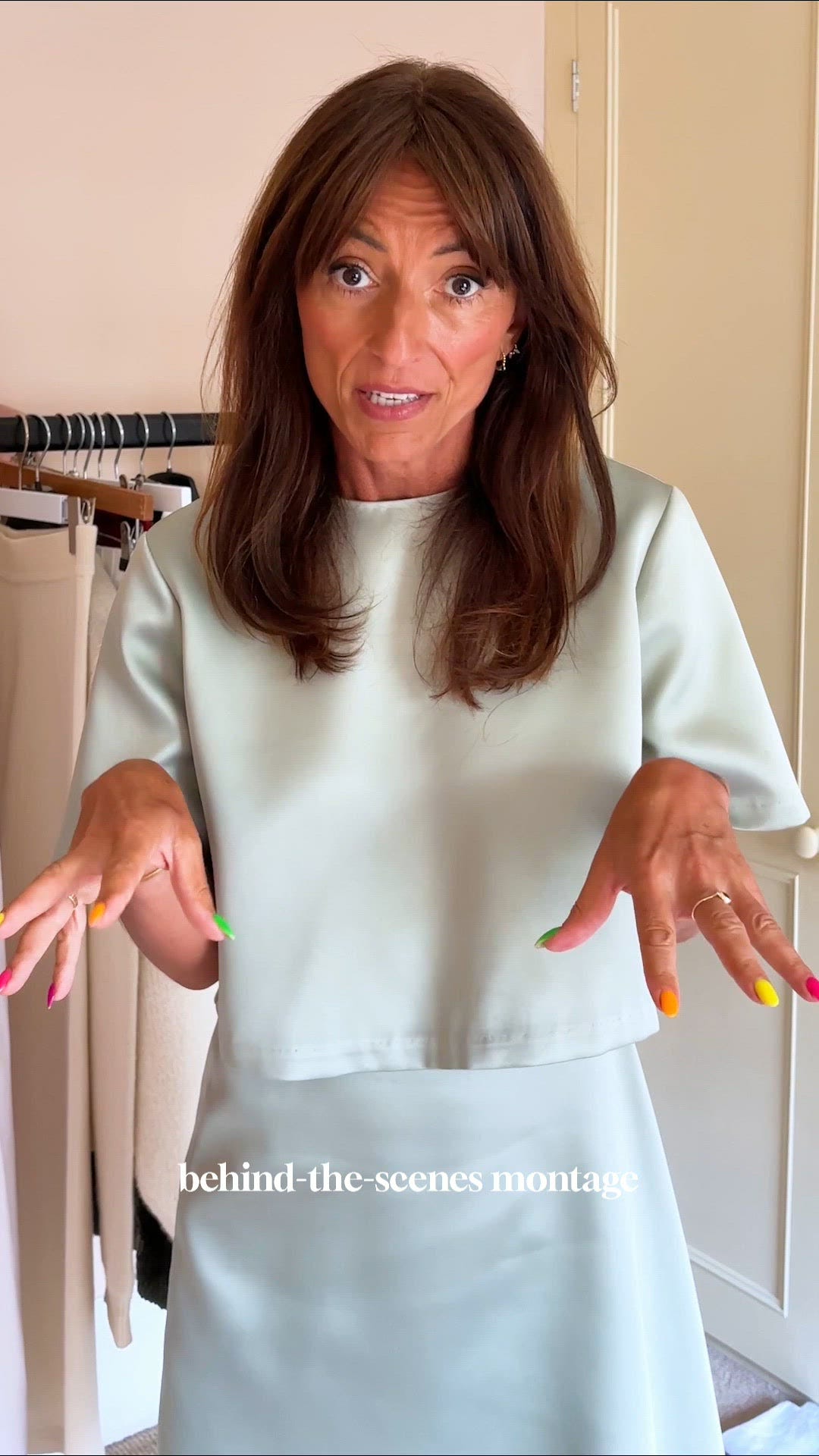When you imagine leaving a legacy, what do you picture? Bricks and mortar perhaps, or cash towards the grandkids’ university fees? How about a bitter feud? A record number of inheritance disputes, estimated at around 10,000 cases annually, are now reported in England and Wales.
In 2022, University College Dublin isolated the most common reasons that families battle over inheritance. The more money at stake, the more likely a dispute will end up in court, they found. Things also get stickier when a business is handed down, or sibling rivalry and divorces enter the mix. So how can you avoid bequeathing a feud? Our panel of experts answer the questions you may need to ask…
The therapist: Lorraine Collins is a psychotherapist and cognitive behavioural therapist
What to read next
The personal finance expert: Bob Massey is an expert in the field of taxation and trusts
The lawyer: Heledd Wynn is a partner at Rothley Law, specialising in wills, powers of attorney and long-term care
Q. I have two daughters. The eldest is a single mum and has never been able to make money. The youngest is childless with a successful career. I love them equally but it’s my eldest who really needs the money. I plan to leave pretty much everything to my eldest, but I’m too scared to tell them both.
The therapist answers…. Tell your daughters you have something important to talk to them about and give them control over the timing, but talk to them together, to avoid any suspicion that secrets are being kept. Stress you are equally proud of them, then explain your decision and why.
Is there anything of sentimental value your youngest could inherit? Consider leaving letters to both, stressing your love for and memories of each of them. This can rewrite the narrative, bringing everyone back to what’s really valuable.
Q: My son became a dad very young. He split from the child's mother and eight years later he met his current wife, with whom he now has two children. I’m worried that if I leave everything to him, it will leave his eldest without her fair share. Should I leave a third to each of my grandchildren instead?
The therapist answers… All parents worry about their children’s future, so ensuring that each of your grandchildren have some security will help alleviate that burden on your son. Explain it that way, and it’ll be clearer that your decision was made out of love for him, too, and not only for the grandchildren.
The personal finance expert adds: A discretionary trust would allow you to pass a one-third share to your first grandchild, appointing trusted family members and/or a professional as trustees, to ensure she benefits from income and capital. You can leave the trustees directions regarding its use – if it should just be for education costs, for example. Directing your money into a trust via your will won’t protect your estate from inheritance tax; the tax will be paid by the estate before your grandchildren receive the money.
Q: I’ve just been asked to be an executor for a very disorganised neighbour. Am I right to worry? And can I say no without offending her?
The therapist answers… Say yes resentfully and she'll likely sense and be hurt by it in the end. So stress that you're touched but don’t have the capacity to do the job justice, as she deserves. Help her consider others who might be able to help instead.
The lawyer weighs in…. You don’t have to accept! That said, if you find you have already been appointed in a will, you’ll need to formally renounce your role as executor. It’s just a matter of downloading a form and sending it to the probate registry. There’s no fee, but do it swiftly and make sure you don’t help out in the meantime – ‘intermeddling’ in the estate is essentially an admission by default that you’re doing the job…
Q: I met my wife later in life, by which time I’d paid off my mortgage. I love her, but I know she’ll find a new man as soon as I’m gone. Since we don’t have children, she’d then be bound to leave it all to him. How can I prevent that?
The therapist answers… Talk to your wife about a legacy you can leave together. Maybe it’s to a charity, a shelter, a local youth club - something you’re both passionate about and want to benefit from your memory. That way, it’s a collaborative decision.
The personal finance expert adds: Instead of leaving your house to your wife, use something called a life interest trust or a flexible Interest in Possession (IIP) trust. This gives her the right to live in or utilise the property for the rest of her life. After her death, it goes to someone else you nominate - this could be relatives, friend, or a charity.
A life interest trust gives no access to the capital derived from the property; but a flexible IIP trust means capital could be made available to your spouse. You would stipulate your wishes and appoint trustees to follow these. With either trust, your wife could sell and move somewhere else if she wanted to, with the trustees agreement. She could even put the monies towards a new property with a new partner, but the share of the property remains held by the trust for your intended beneficiaries.
Q: Last year, I remarried. My husband and I both have children from previous relationships, are solvent and own our own homes. We also both have wills we’re happy with, leaving everything we own to our children. But does our marriage immediately forfeit them?
The lawyer answers… Unless the will you signed before you got married contained a clause explicitly stating that it isn’t to be revoked by marriage then yes, getting married will have immediately revoke its instructions. So I’m afraid it’s time to update your will, with one that confirms your wish for your children to inherit.
Q: In his late 60s, my dad wrote a will dividing everything fairly between family members. A couple of years ago, he met and married a new woman. Soon after, he developed dementia. His wife and I both have lasting power of attorney, but she now makes it very difficult for me to see dad and I worry she may be trying to persuade him to change his will. Is there any way I can find out if she does - and reverse it, if she has?
The personal finance expert says: If you re-marry, your previous will is void, and unfortunately there is no way of finding out whether a new will has been made and what’s in it. The key to this lies in the fact your father has dementia. The will would be invalid if it’s dated after your father has been assessed as not having capacity, but if it is early stages of dementia, there is a chance he could be assessed as still having capacity.
The lawyer adds... Anyone who wants to write a will has to have what is called ‘testamentary capacity’ which means that they need to understand what they are doing. If you make your will with a professional, they’ll undertake tests to establish that capacity. If your dad made a DIY will, though, that process will have been bypassed. That said, it could also make it easier for you to challenge its validity.
Once someone dies, you can enter a caveat at the probate registry. That caveat is essentially a complaint, or an expression of concern, which automatically halts the will’s approval till its resolution. Then, you’re into litigation. Beware - if the will was a DIY one, with no professionals to vouch for it, you could be embroiled in months of ‘he said, she said’. So if you have reasons to contest a will on the grounds of lack of capacity then seek independent legal advice as soon as possible.
Q: Bills have eating into ours savings so my husband and I will have to use our house to pay for later care. Is there any way to save it for the children? And if not, how can I tell them?
The therapist answers… I’m sure your children wouldn’t want you to be struggling or worrying. Having conversations with them as equals is a valuable part of growing up. So tell them, but plan the conversation in advance. How would you feel if they offered to care for you in their homes to save the cash? You really need to decide what’s important to you, and what you value, so that you can live a good life for what’s left of it. If that’s independence, at the cost of a legacy then there’s nothing to be ashamed of. In fact, it might be another kind of positive legacy to leave – a blueprint for living well.
The personal finance expert says: I’d advise against putting a house into a trust unnecessarily, as it prevents equity release in the event you might want or need to do that. In terms of care costs, if one spouse remains in the house, the property is disregarded in the financial assessment. The house doesn't count as an asset, so is protected at that stage.
I recommend that you arrange your home to be held as tenants in common (TinC) as opposed to the standard joint tenancy – TinC means that you own half and your partner owns the other half. Each of your wills directs the deceased’s share of the house to a trust with the spouse and children as beneficiaries. The local authority assesses the income and assets (financial assessment) of the care user and not those of the spouse/partner.
There’s no disadvantage to the first person to need care - they'll get the care anyway; the local authority, if required, will pay for some or all of it, but must disregard your home at this time. On the death of the first spouse, their half would be directed by the will to a trust(s), for the benefit of their spouse, but also protected for the children of the deceased. On the dead of the second spouse, both half-shares of the house will pass to trust again for the children - note that these may not be the same as those of the first to pass away. The assets stay in each bloodline and protected from care costs.
A new cap on care costs is set to be introduced by the Government, meaning that the maximum amount anyone will have to pay towards care is £86,000 (although the deadline for this has already been pushed back by a year).
Q: An elderly aunt has decided to leave her house to my son. We’re cash strapped, and I have some concerns. First: inheritance tax. How soon will he have to pay it? Second, how do I stop a 19 year old from going wild with newfound wealth, and throwing it all away on partying?
The therapist answers… How do you ensure a teenager makes sensible decisions? Short answer – you can’t! Your son may not listen to you, so find someone who stands a better chance – an older cousin, or a godparent who can encourage him to think about how he can use the money to get the future he desires, rather than splurges what he wants now.
The lawyer weighs in… To avoid interest accruing, Inheritance Tax (IHT) needs to be paid within six months of the date of death. The rules on property allow you to pay in installments over a 10-year period, but that interest will still accrue I’m afraid. As your son's over the age of 18, once he has his hands on it, there’s nothing you can do! I'd suggest a conversation with the aunt, as soon as possible. She could stipulate that he is not to inherit until a certain age – 25 or even older!













